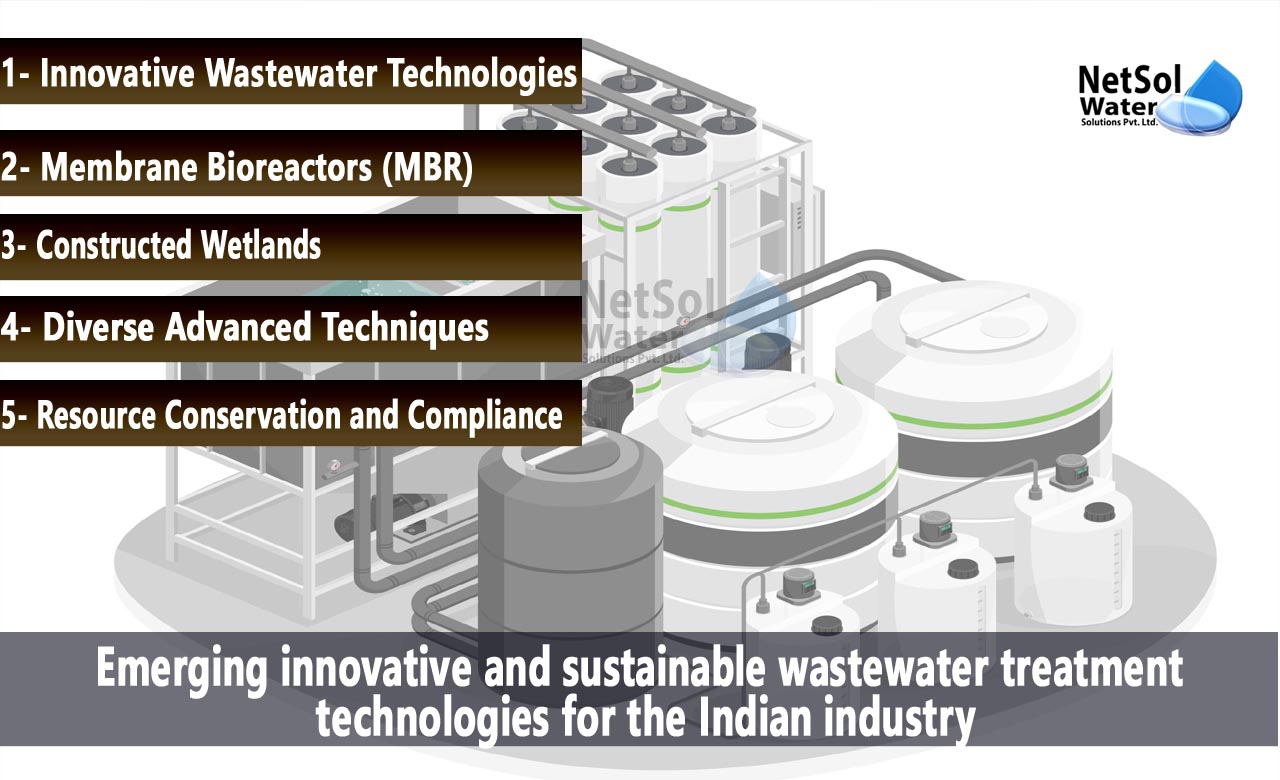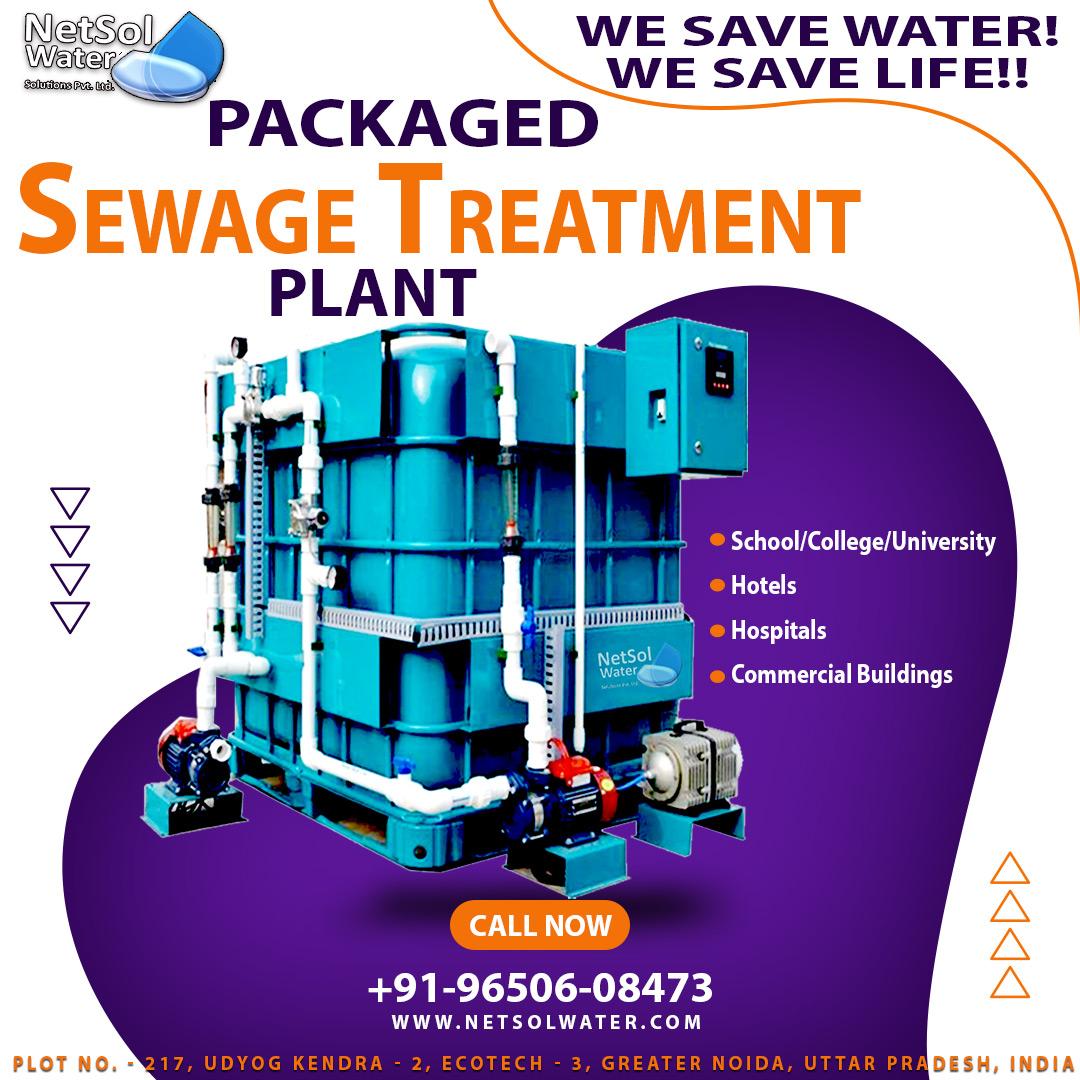Innovating wastewater treatment technologies for Indian industries
Innovative and sustainable wastewater treatment methods are becoming crucial in India, where environmental issues and fast industry and population expansion have stretched water resources. These solutions help save resources and create a cleaner future in addition to mitigating the negative environmental effects of industrial effluent. We examine a few of these cutting-edge technologies that are revolutionising the Indian industrial sector in this blog.
Bioreactors with membranes (MBR)
Membrane bioreactors are systems that integrate membrane filtration and biological treatment. Because MBRs provide excellent solids separation and yield high-quality treated water, they are very effective at treating industrial wastewater. They are small and perfect for spaces-constrained industries.
Constructed Wetlands
Artificial wetlands use substrate, bacteria, and aquatic plants to treat wastewater in a manner similar to that of natural wetlands. They efficiently treat a range of industrial effluents, including those containing heavy metals and organic pollutants, and are both affordable and sustainable.
The process of electrocoagulation
Using iron or aluminium electrodes, electrocoagulation is an electrochemical method that coagulates wastewater to remove pollutants. It is an economical and environmentally friendly technology that can be used in businesses like textiles, tanneries, and electroplating that deal with difficult effluent.
Advanced Oxidation Processes (AOPs)
Using extremely reactive hydroxyl radicals, AOPs degrade and eliminate both organic and inorganic pollutants from wastewater. AOPs are useful in the chemical, petrochemical, and pharmaceutical industries because they can effectively address developing and resistant pollutants.
Forward Osmosis (FO)
Forward Osmosis is a low-energy method that draws water through a semi-permeable membrane and separates impurities using the osmotic pressure difference. For sectors like textile and food production that struggle with water scarcity, FO can be a viable alternative.
Anaerobic Treatment
Organic wastewater matter is broken down in anaerobic treatment processes by microorganisms that live best in an oxygen-free environment. This technique offers enterprises a renewable energy source by treating wastewater and producing biogas.
Ozonation
Ozonation is a sophisticated oxidation technique that breaks down and oxidises contaminants in wastewater by using ozone gas. Ozone is useful for a variety of industrial applications because it efficiently eliminates a broad spectrum of pollutants and pathogens.
Systems of Bioelectrochemistry (BES)
Wastewater is treated by bioelectrochemical systems, which take use of the interaction between microorganisms and electrodes. Businesses with organic-rich effluents can adopt a sustainable approach by utilising BES, which can both create power and eliminate organic contaminants.
Nutrient Recovery Technologies
Industry-related wastewater frequentlycontains important nutrients like phosphorous and nitrogen. By capturing and recycling these nutrients, nutrient recovery technologies can lessen their negative effects on the environment and produce a sustainable resource for use in agriculture and other fields.
Zero Discharge of Liquid (ZLD)
The goal of zero liquid discharge technologies is to reduce the amount of wastewater that is released during industrial processes. By recovering and recycling water, these systems help to preserve resources and lessen the need for new water.
Innovative Wastewater Treatment Technologies' Advantages
The industrial sector in India stands to gain multiple benefits from the use of sustainable and innovative wastewater treatment technology.
· Environmental Stewardship: By minimising pollution and safeguarding nearby ecosystems, these solutions lessen the environmental impact of industrial effluent.
· Resource conservation: A lot of these technologies make it possible to collect and repurpose precious resources, including water, therefore lessening the demand on natural resources.
· Regulation Compliance: Creative solutions assist sectors in adhering to strict environmental laws and avoiding fines for noncompliance.
· Decreased Operational expenses: Industries may find certain technologies economically appealing due to their potential to result in cheaper maintenance and operation expenses.
· Energy Efficiency: A number of energy-efficient wastewater treatment systems support ethical and sustainable industrial practises.
· Sustainable Practises: By using these technologies, industries show that they are dedicated to environmental responsibility and sustainability, which can improve their marketability and public perception.
Conclusion
India's industrial sector is changing as new and sustainable wastewater treatment technologies come to the fore. These technologies support sustainable development, resource conservation, and environmental protection objectives in addition to providing efficient treatment options. India's industries can meet regulatory requirements, save operating costs, and preserve economic competitiveness by adopting these advances and helping to clean up the environment. Adoption of such technology is crucial for a sustainable and ecologically conscious future as India's industrial sector grows.




